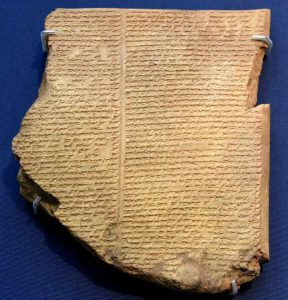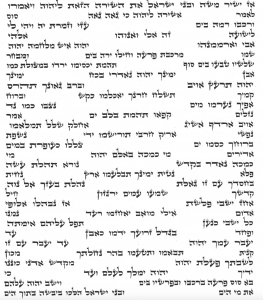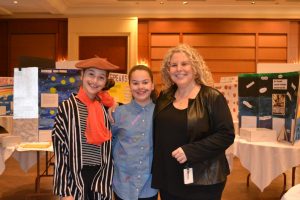
Rabbi Eric Grossman
« Par ma foi ! il y a plus de quarante ans que je dis de la prose sans que j’en susse rien !»
“My faith! For more than forty years I have been speaking prose without knowing it!”
Molière, Le Bourgeois gentilhomme
Like Monsieur Jourdain in Molière’s play, most of us do not reflect upon the fact that, in our daily lives, we speak prose instead of poetry. Poetry today feels like an esoteric indulgence, reserved for specialists and enthusiasts. This reality is quite recent; for most of human history, poetry was an integral and natural part of everyday life. What changed, and why?

Tablet from The Epic of Gilgamesh, believed to be the oldest surviving piece of Epic Poetry.
In the ancient world, poetry was the way that civilizations told their origin stories. The Babylonian Epic of Gilgamesh and Homer’s Iliad and Odyssey were foundational epic poems that were known and beloved throughout antiquity, and date from the early periods of recorded history. The Hebrew Bible too is filled with poetry; the book of Psalms alone consists of 150 poems. Last week in synagogue we read the longest and best-known of all poems in the Torah, the Song of the Sea, and it is this poem that gives us the key to understanding the role that poetry played for our ancestors, and why it has seemingly disappeared from our lives.

The Song of the Sea as it appears in a Torah scroll. Notice how you can see the poetic form in how the text is arranged on the page.
When the Israelites crossed the Sea of Reeds, they immediately broke out in song, and recited a complex, 18 verse poem expressing gratitude for the salvific actions of God in rescuing them from their Egyptian enslavers. How did the Israelites manage to compose such a piece of poetry seemingly on the spot? It must be that our ancestors—unlike us and the Bourgeois Gentleman—did not speak in prose, but rather in both prose and poetry. For the biblical Hebrews, poetry was a regular part of daily speech that they mixed in their conversation and could be conjured at special moments, such as the miracle at the sea. Indeed, throughout the Bible, characters lapse into poetry when they become emotional, as if people could not help but mourn and rejoice in verse.
Because today poetry is no longer part of daily conversation, it has been relegated to the margins of life; since we are not used to poetic expression, we produce and consume less of it. As it becomes harder to relate to poetry, we reach for it less often. This is a shame. As we see from times long ago, poetry is a natural way to enrich our lives, filling our thoughts with depth of expression and symbolic meaning.

Art Speaks!
The Akiva Grade 6 English curriculum reverses this trend, infusing poetry back into the speech of our students. Our children learn a myriad of poetic structures—haiku, blackout, reversing, and rhyming—and compose their own original works in these and other forms. Then, this past Wednesday, they performed their works in front of parents, teachers, staff, and siblings. The name of this program, Art Speaks, references the role that the poetic arts should play in our speech, a natural form of verbal communication rather than a dusty arcane text or written project. Our students recited their poems as if they were the most natural expression of themselves, an elevated articulation of their deepest thoughts.
Congratulations to all of our Grade 6 students who composed and performed so beautifully. May your voices always be filled with great verse. A special thank you to Helaine Tecks and Jake Stevens for creating and implementing this wonderful event. Thank you as well to Marcello Jordan for his help with the technology, and to Isabelle Silva for the Visual Art portion of Art Speaks, about which I shall write in a future post.












